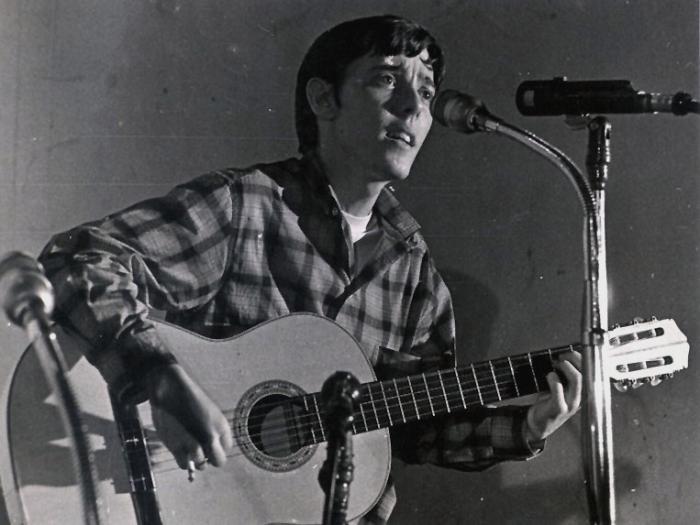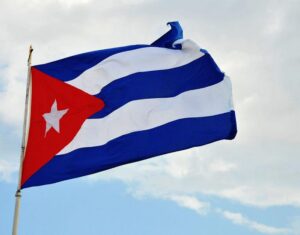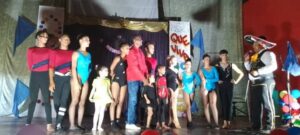Twenty years ago, Noel Nicola departed; behind him he left us many reasons-songs to be alive, simply.
The entertainment industry, powerful, omnipresent, bets on homogeneity: that we find the same types of bodies or faces beautiful, that we like the same music and, even, that we react angrily or euphorically to the same things – but without going too far or Noel portrayed the Island of his time and universal feelings. Photo: Granma Archiveletting it last too long. Everything quick, everything ephemeral. One must be cardboard, without much reflection.
That is why genuine culture is dangerous; that is why real beauty is combustible: what moves us compels us to think, to swim against the tide. Antidotes are needed, so that our sight and judgement are not clouded by so much canned product, soulless.
Each must find their own, but I dare to recommend an infallible one: *37 canciones de Noel Nicola* (Ojalá Studios and SGAE, 2007); an album in which many musicians united to perform a selection of his pieces; 20 of which were chosen by Noel himself.
It is impossible to listen to such a work without feeling love for the world, without moving from joy to nostalgia, without eyes moistening, and feeling the desire to *be* and *do* – which is more than existing. And, simultaneously, without renewing our awe for the depth of the legacy of Noel Jorge Nicola Reyes (Santa Clara, 7 October 1946–Havana, 7 August 2005) within Cuban songwriting.
As Silvio Rodríguez has noted, it is an exemplarily diverse and personal artistic body of work, of «songs that will follow you even into your dreams; songs that will await you when you open your eyes and that will walk with you on your way to your tasks. Here you will see a man loving intensely and the same man combating death, machismo, bureaucracy, opportunism, indolence.
«Here you will glimpse the artist who discovered César Vallejo and sang him like no other. Here you will meet a practitioner of all styles of Cuban music, and an explorer of many universal airs. Here you will learn of elegies, questions, desires; of commitments sometimes direct and others subtle, and of an ethical sense of deep revolutionary significance.»
And he adds: «In these songs there is a man asking to be loved as he is and not as he is expected to be. Here, in short, you will see a child tenderly frightened by the dimensions of the love he assumes.»
Noel Nicola, born into a family of musicians, is a central figure of the *Movimiento de la Nueva Trova*. Not only was he alongside Silvio and Pablo Milanés at that inaugural concert of 18 February 1968, in the Che Guevara Hall of Casa de las Américas; and was one of the members of the *Grupo de Experimentación Sonora* of ICAIC; but he also sacrificed time from his personal creation to lead the Movement for several years, sought new talents, organised festivals and gatherings…
On what united them then, he said: «…we felt ‘different’ from what was happening in the realm of song and therefore identified with each other. This almost forcibly leads to cohesion. Identity in artistic approaches, formal aspects, the function of art. We were a group of young revolutionaries who chose song as a way to work, to influence society.»
Of strong character and a resilience that contrasted with his fragile appearance, Noel possessed a powerful voice, capable of high notes and treble tones – as acknowledged by contemporary troubadours; the sound of his guitar was refined, and his compositions full of contrasts.
And there was also the poetry, in the lyric and in the song, as a whole. Worthy of citation are the verses from one of his best-known:
*What I do not forgive you / is having kissed me with such treachery. / I have witnesses: a dog, the dawn, the cold, / and that I certainly do not forgive you, / for if I forgive you, I will surely forget it*
(Indeed, I Forgive You).
From among his wealth of great songs, we may recall: *Laura, milonga y lejanía*; *Ámame, así como soy*; *Yo no te escogí*, *Para una imaginaria María del Carmen*, *Comienzo el día*, *Ya están las semillas*, *Pasión y prejuicio*, *Llueve en agosto de 1981*… There are many. Quietly, the «calm one» of the Nueva Trova built an immortal body of work.
Thanks to this, we can say, alongside that *Trovador sin suerte* of his:
*But I still have my song / –even so I still have my song– / despite my bad fortune. / And that is a good reason / –a magnificent reason– / to be alive simply. / To feel, to dream / and to love.*




